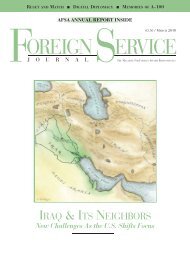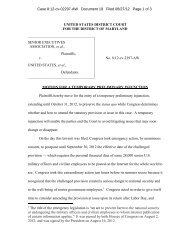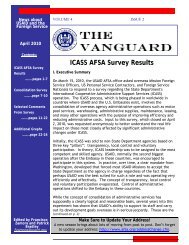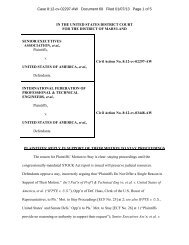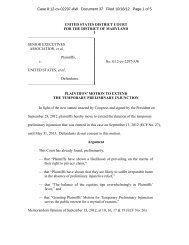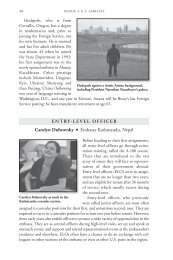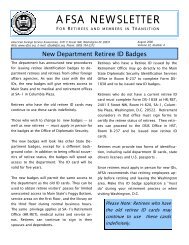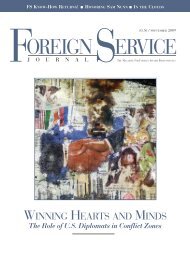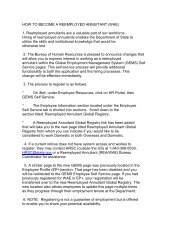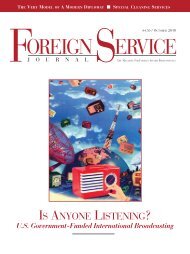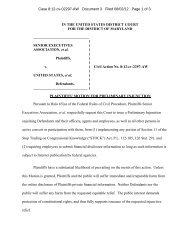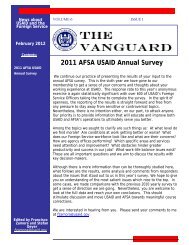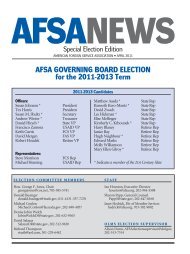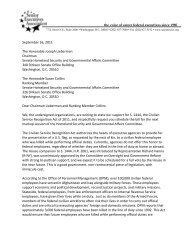F OCUS - American Foreign Service Association
F OCUS - American Foreign Service Association
F OCUS - American Foreign Service Association
You also want an ePaper? Increase the reach of your titles
YUMPU automatically turns print PDFs into web optimized ePapers that Google loves.
itors to both our PRTs and our brigades are struck by the<br />
strong and positive working relationships that exist<br />
among the <strong>American</strong>s, regardless of agency. U.S. civilians<br />
who are assigned to non-U.S. PRTs work hard, with<br />
varying degrees of success, to replicate such relationships<br />
with their lead-nation hosts.<br />
The Civilian Component<br />
Civilian personnel are assigned to PRTs to provide<br />
crucial skill sets that the military lacks. These include<br />
political reporting, cultural awareness, an understanding<br />
of civilian governmental structures and a background in<br />
development. State Department personnel can be<br />
broadly defined as political officers, although on any<br />
given day they may be involved in public diplomacy or in<br />
economic, political-military or consular issues; or they<br />
may be engaged in work that falls outside of any defined<br />
category. USAID and USDA personnel serve as catalysts<br />
for development activities, ensuring that programs are<br />
integrated and coordinated with reconstruction efforts of<br />
F <strong>OCUS</strong><br />
the military and other donors, while reflecting the priorities<br />
of the Afghan government. As the lead for development,<br />
the USAID officer works closely with military and<br />
civilian counterparts to shape PRT efforts based on<br />
proven best practices.<br />
The fluid situation on the ground, however, makes it<br />
hard for civilian PRT officers to know with any certainty<br />
how their day will unfold. Positive things, such as inaugurations<br />
of development projects or meetings with tribal<br />
leaders, are somewhat predictable. Negative occurrences<br />
are the wild cards: tribes may clash over land,<br />
insurgents may set off a bomb, the governor may clash<br />
with his provincial council chief, or rains may trigger<br />
flooding.<br />
One thing is certain, however: most of our officers get<br />
outside of their Forward Operating Bases on a daily basis.<br />
They interact with the governor (who is appointed by<br />
President Hamid Karzai), the popularly elected<br />
Provincial Council, tribal elders, religious leaders and<br />
others. They also interact with communities to identify<br />
JULY-AUGUST 2008/FOREIGN SERVICE JOURNAL 33



